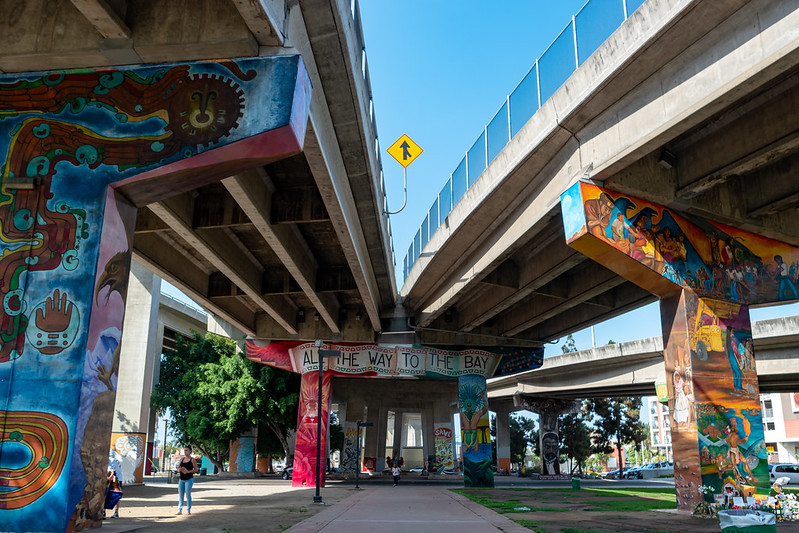Mesa’s Chicano/a Studies department of San Diego Mesa College hosted a virtual event on April 12 in celebration of the 10th anniversary of the Gracia Molina de Pick Feminist Lecture Series.
This year’s keynote speaker was Josephine Talamantez, a long-time community activist for the Barrio Logan community, the co-founder of the Chicano Park Museum and Cultural Center, and a member of the Chicano Park Steering Committee.
For a decade now, the series has been dedicated to showcasing powerful Chicana community leaders in honor of the late educator and activist Molina de Pick, who wrote the founding document for the Chicano/a Studies program at San Diego Mesa College.
“Ms. Talamantez’s work focuses the effort to combat racist and social injustices that have historically plagued the Barrio Logan and Portside communities of San Diego,” said Chicano/a studies professor Victoria Chavez in her introduction of Talamantez.
“Such injustices continue to this day,” she added, “but because of Josephine’s tireless work, we are in a much better position to succeed in finding long-term solutions and tangible successes that otherwise would not have been realized.”
Talamantez’s discourse chronicled the cultural and political history of Chicano Park, making note of the trials and tribulations that the park and its community have endured in an effort to keep it standing over its 51 years of existence.
Built on a plot of land that was originally intended by the City of San Diego to be a California Highway Patrol substation, Chicano Park is a labor of love and resilience by its community that now serves as a space for the Barrio Logan people to host community events and celebrations.
“We just didn’t need any more police in our community,” Talamantez said. “We occupied the land for 12 days to create our own park.”
The dispute around the park’s inception was just one of the many socioeconomic issues that the residents of Barrio Logan had to endure in the past, yet today it stands as one of the diverse pillars of San Diego.
Today, Chicano Park boasts over 90 community murals that make up the cultural aesthetic of the park’s urban landscape. In 2016, Chicano Park was officially recognized as a National Landmark by the Obama Administration.
Despite the honors Chicano Park has received over the years, the park and its residents still face the same discrimination as the day they broke ground, Talamantez said. Now more than ever, Barrio Logan is impacted by the surrounding elements, including naval shipyards and pollution of the nearby San Diego Bay, with a lack of aid from the city to correct the environmental impact.
“Why is it that when communities of color advocate for social change against toxic environments and fight to preserve water, land, or what’s left of their communities, they are referred to as agitators, rabble-rousers, troublemakers, but when others fight for the environment they are referred to as environmentalists or EJ workers?” Talamantez asked of the racial disparities between activist groups.
Aside from noting the historical timeline that led to Chicano Park becoming the cultural locale it is today, Talamantez also detailed the socioeconomic issues still plaguing the people of Barrio Logan including gentrification, lack of medical response to the community, and over-policing.
“It’s just something I keep running into over the years; when you talk about discrimination, segregation and racism, we’re always in a different category,” she said.
The efforts of Talamantez and the Chicano Park Steering Committee continue to preserve the legacy of the park and those community members who built it in response to the lack of recreational infrastructure available to Barrio Logan residents.
”I remember Gracia de Pick when I was a student at San Diego City College,” Talamantez said. “She was a force in the community and left many legacies to her name, and for me, it was an honor to be asked to speak at the 10th Annual Gracia Molina de Pick Feminist Lecture Series. Graciás, Mesa College, for keeping her vision alive.”
In observance of the 51st annual Chicano Park Day, a virtual celebration will be held this year from April 19-25. The full program is available on their official website.
The Gracia Molina de Pick Feminist Lecture Series has attracted a wide range of campus and community members from the region to San Diego Mesa College “to reflect on the importance of Chicano/a studies, women’s rights, civil rights, community service, and education,” according to its website.


